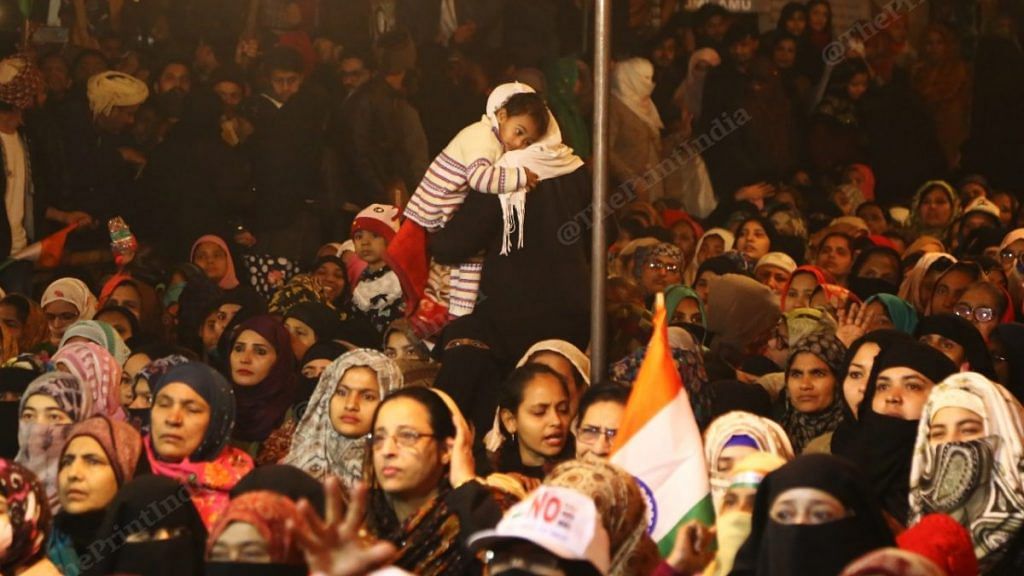Like God supposedly does, the Supreme Court of India works in mysterious ways. Even as we lament the fact that it has delayed deciding on important petitions involving the violation of people’s fundamental rights, the Supreme Court has acted upon a letter written by a 12-year-old against the involvement of children in Delhi’s Shaheen Bagh protests. While issuing notices to the Union and Delhi governments after an infant died at the protests, the court asked: “Was a four-month-old child there to protest?”
Well, it’s easy to answer why an infant was at the scene of the protests, but harder to answer to what extent should older children make — and be used to make — political and public arguments.
The infant was at Shaheen Bagh because his parents were protesting, and unless you are well-off, reliable childcare is beyond the means of most people. That is why we in India are witness — and oblivious — to infants at hazardous locations like construction sites, footpaths and traffic signals.
Parents feel their children are safer in such dangerous places than at the alternative, if at all there is one. It is an indictment of both Indian society and the Indian state that this should be the case. The exact sequence of arguments in the Supreme Court is unclear but the advocates for the Shaheen Bagh protesters ought to have argued that the best place for infants is at the side of their breastfeeding mothers.
Also read: Karnataka anti-CAA school play: Should children not participate in political movements?
Politics of convenience
A much harder question to answer is the extent to which older children ought to be engaged in politics and public discourse.
Unless in the most exceptional cases, children’s involvement in politics is supported, encouraged, managed or instigated by the adults in their family. There is a long history of children waving flags, dressing up as political leaders, holding ideological banners or singing songs in support of political causes. Our reaction to these images depends on our politics: we tend to approve of these actions when we support the cause, and are horrified when we don’t. We are not horrified if little children celebrate violence or martyrdom, provided they are doing it for the ‘right’ cause. Most of the time, therefore, adults’ opinion on children in politics is unconsciously self-serving.
Now, no liberal society should bar children from engaging in politics. The question is how should a liberal society deal with them. We know that most of the time, the child’s politics is greatly influenced by the immediate family and community. We also know that children can be used to disarm opponents, their innocence deployed to silence critics.
Also read: How India protested when there was no WhatsApp or Instagram
Look at arguments, not age
Seventeen-year-old Swedish activist Greta Thunberg, whom the Shaheen Bagh lawyers’ cited in the court, is a good example. If you agree with her political views — yes, views on environmental protection are political — you are likely to approve of her speeches and activism. We are told that we should listen to her arguments and do what she recommends because she is so young, and a lot of people do. Disagreeing with her invites charges of being heartless, rude or dismissive. I do not doubt that Thunberg is really passionate about the cause she espouses, but only the credulous will believe that there is no strategy and marketing behind the Greta Thunberg phenomenon. Just like it took a lot of money to keep M.K. Gandhi poor, it takes a lot of adults for a child to occupy space in the public discourse.
Despite this, we should neither disallow nor discount the arguments that children make. What we should do, to the extent that they affect public policy, is to treat their arguments in the same way as we would if they were adults. Greta Thunberg the person should be entitled to special treatment on account of being a teenager. But Greta Thunberg’s arguments should not be entitled to any special privilege on account of her age. They should be examined and debated with the same rigour as those made by any adult. So too our 12-year-old bravery award winner: her arguments too must not be dismissed because of her age, nor must they be accorded special privilege.
Whether or not children should be kept away from protest sites is not a decision for the Supreme Court to make. It is a decision that rightly belongs to — and is best left to — their parents or legal guardians. No organ of state cares more for the well-being of the child than the parent. No organ of state is more equipped than the parent to weigh the trade-off between the risks of participating in a protest against the value of doing so. As much as the Supreme Court is concerned about the welfare of infants and children, it must not intervene in the private matter of the choices that parents make for their children. After all, the Supreme Court is not responsible for the consequences of its decisions. Parents are.
The author is the director of the Takshashila Institution, an independent centre for research and education in public policy. Views are personal.
